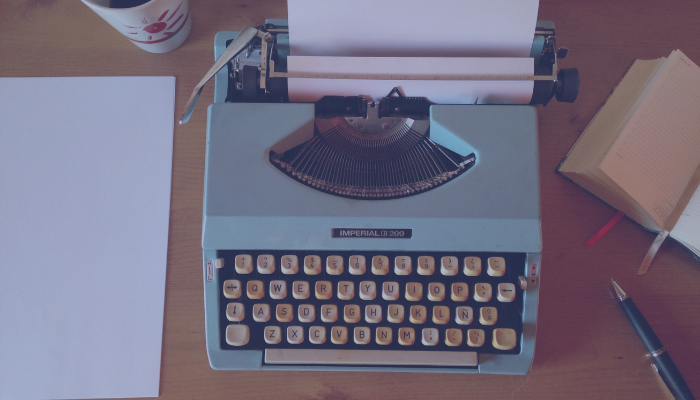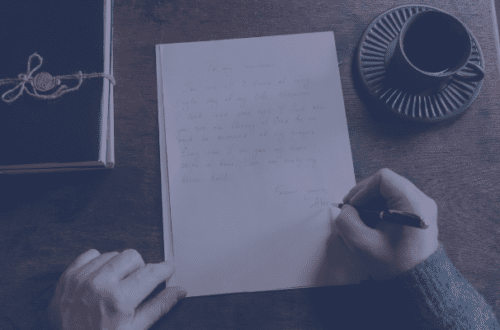
Writing as an Embodied Practice
This year I formally committed myself to my writing career and began composing what will become my debut novel. As often happens when we finally start doing something to which we’ve long aspired, I immediately realized that no amount of thinking/reading/dreaming would have been enough to prepare me for actually writing a novel.
After several months of valiantly trying to turn out a consistent word count I realized I had jumped into the deep end of the pool before I knew how to swim. This is not unusual for me. I’m known for foolishly running headlong into impossible challenges. But this time, something was different. Writing a novel isn’t just a random creative impulse, it’s a lifelong dream. I was crestfallen to discover that I sucked at it.
I’ve always known that deep down I have stories to tell. My childhood was spent dissociating and escaping into books and other imaginary worlds. As a result, my interior life is rich and colorful and often far more enjoyable than cold, hard reality. During adulthood I had to learn to cope with life without resorting to escapism (thank you therapy!), yet I’ve retained my expansive imagination and it serves me well. There seems to be a never-ending stream of great ideas swirling around in my brain at any given time.
So why was I having such a hard time getting these ideas down in written form?
I’d read several books by famous authors and spent hours pouring over social media posts reading others’ accounts about the craft of novel-writing. I’ve spent years daydreaming about sitting alone with a beloved typewriter, in a state of flow, letting the enormous feelings and intricate ideas inside me pour out onto a page.
Imagine my surprise when I found out that much of writing is about consistently pushing past creative inertia; that it doesn’t get easier; and that being a writer isn’t about talent or genius, but about stubbornness and self-discipline.
So this month I logged off my social media accounts, determined to finish my novel’s first draft. I had no reason to believe I could do it. I’d been at it four months already and wasn’t even at the halfway point. Something would have to change if I wanted a different result, so I began to analyze my “process” up to this point and started to see where I was letting myself down.
One of the biggest lessons I’ve learned from practicing Zen is that our minds are unreliable narrators of reality. We are all born fantastic storytellers, centering ourselves and those who appear to be like us, gathering evidence that supports our beliefs, even unconsciously. The purpose of a Zen practice is to stop telling ourselves stories about ourselves and the world so that we can be fully present in the reality of each moment. This lesson has been reiterated for me as I’ve followed the path of Tai Chi, where I’m regularly admonished by my teachers to ‘stop thinking about it, and ‘just do it’.
So I came up with a plan, which I designed for myself, specifically to address my own challenges. I’m sharing it with you here not as a prescription, but to inspire you to reflect on your own challenges and changes you can make to address them.
First, I realized that I needed to get out of the house. Since I quit my job in January I’ve been at home. To save money I sacrificed my car and now share a car with my spouse who works twenty miles away at a location with no public transportation access. That means most days I’m here at a house in the suburbs alone. Additionally, I needed to address a regular lack of motivation, as well as concerns around maintaining my mental and physical health.
There’s a library about a mile from my house in one direction, and our neighborhood rec center is about another mile in the other direction. So the plan I came up with was this: meditate first thing in the morning, have my breakfast, then walk to the fitness center and work out; after that, I walk to the library and write for 3 hours. By the time I’m done it’s about 2:30, and I walk home, take a short nap, and then start dinner refreshed.
The system I’ve devised hits all the bases for me. When I meditate first thing in the morning I let my brain know who’s boss – a much-needed skill in today’s world. When I control my own chattering ‘monkey mind’, I’m able to use my imagination as a tool.
After meditating, I exercise, which gives me a boost of serotonin and dopamine. So by the time I arrive at the library I’ve been off my phone for an hour and a half and my body is calm and relaxed from the exercise and fresh air. I’ve burned off any nervous energy and my brain is focused and ready to work. At the library I sit in silence with my laptop in composition mode, notifications off.
When I write at home I’ll usually hit a wall after half an hour. My inclination, when I’m not able to come up with something after sitting there for five or ten minutes, is to close my laptop, get up and do something around the house. But at the library, physically removed from laundry and dishes, I simply sit with the discomfort, perhaps eking out a sentence or two until my brain catches the next wave of creativity and I’m once again writing in flow. It happens like this, in spurts, and I’ve realized that I need to lean into those moments when I feel like I have nothing to say. These creative ‘blank spaces’ that arise as I’m composing are a natural part of my process and I need to accommodate them rather than take them as a sign I’m finished.
The big takeaway from this experiment is the discovery that my ability to use my imagination for work is inextricably tied to my physical state. Finding a daily balance between mind and body – starting with paying attention to my physical being – is how I’ve learned to center writing in my day. It’s become my occupation around which everything else revolves. I set myself up to succeed at writing each day by creating the optimal conditions for my brain to work creatively.
This absolutely takes self-discipline, but what carries me through when I feel like slacking off are the cumulative results. I’m thrilled to report that I’ve been able to finish my first draft within three weeks of this new way of working, and it’s given me a boost in confidence. I feel charged up, excited about writing, knowing that the ability to finish isn’t dependent on the moon and stars, or some abstract muse, or even innate talent. Being a writer is about the act of writing. It’s as much about what we’re doing with our bodies as our minds. Perhaps this seems obvious to some, but I actually think most of us these days spend way too much time thinking and not nearly enough time doing.
It’s in the doing of things that we come to understand our own limitations, and rather than letting this discourage us, we should embrace these limitations and let them inform our decisions about how to go about our work. We can think creatively about being creative, taking into consideration what we need in order to get the best from ourselves. A little experimentation might be in order, but it’s surprisingly easy to find something that works once you’re honest with yourself about where your challenges lie.
Anyway, I’m stoked. My first draft needs a lot of work, but at least I have something to work on – a lump of clay that I can sculpt and mould into something that represents my creative vision. This, I’ve discovered, is how it’s done. Not in a flash of brilliance, but in daily effort that takes me out of my comfort zone, challenges me in the ways I need to be challenged, and offers me a way to succeed even when I doubt my abilities.
As we prepare to enter 2024, I’m wishing you all joy and happiness in the coming year.
May you find your way to creative power and use it well.
Love,
Q.



